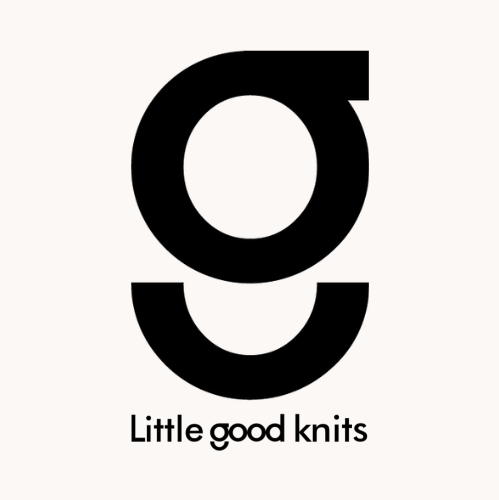Instead of fast fashion, we believe in high quality + low cost per wear.
Sustainable & Ethical Knitwear
Perhaps the first thing that comes to mind when you hear the phrase “sustainable fashion” is a picture of baggy, neutral-colored hemp clothes.
That’s Nice, but we are more than that.
Our brand relies heavily on pre-orders. Hence no resource will be wasted on making more than there is a need for. Nothing is more heartbreaking than a wonderfully crafted clothing with no one to wear it. With that in mind, we hope you enjoy your Little Good Knits for a long time or pass it on to someone who will give it new life.
Mohair, cashmere and merino wool are natural, renewable, biodegradable, and durable fibers. Our knitwears are seriously made to last for decades!
We source our merino wool from Australia and the United Kingdom, our dye from Italy and France, our cashmere from Mongolia, our mohair from South Africa and the United States.
Our fitting is always relaxed, loose-fitting, and comfortable to wear. Their touch is always smooth, warm, soft, comfortable, and gives daily cozy hugs.
We’ve infused a hint of spandex throughout the waffle knit, as well as heavy duty zones like the ribbed cuffs and waistbands, to ensure that they stay in shape wear after wear.
No animal is harmed in the process of making your knitwear. We’ve also reduced single-use plastic by using eco-friendly wax paper packaging. All purchases will be wrapped and transported in biodegradable material.
Many of our handcrafted elements are finished in London, where our studio is located. We also collaborate with a few small knitwear manufacturers that can make limited runs of knitwears with unique characteristics.
We are all about teamwork. Our creator partners, craft gentlemen/ladies, and manufacturers all receive fair pay.
200+
Happy Partners
Using our CONSCIOUS CRITERIA, we examine the effect of our brand's manufacturing.
This enables a consistent evaluation, which aids in understanding the effect of each product on the world, humans, and animals.
RECYCLED MATERIALS
One of the most sustainable ways of producing new fashion collections is to make them out of components that would have usually gone to waste. We consider featured products as recycled if the fabrics contain at least 30% pre- or post-consumer recycled materials, with the exception of recycled cotton at 20%. Certifications we will consider: Global Recycle Standard (GRS), Cradle to Cradle (C2C), Recycled Claim Standard (RCS)
ORGANIC MATERIALS
The plants that are the origin of the fiber of the textile have been cultivated through organic agriculture. We consider a fabric organic if at least 70% of its fibers come from certified organic farming. Certifications we will consider: Global Organic Textile Standard (GOTS), Organic Content Standard (OCS), Forest Stewardship Council (FSC), Responsible Wool Standard, EcoCert, World Fair Trade Organization, Certified Animal Welfare Approved
SUSTAINABLE MATERIALS
We consider sustainable materials as fabrics that are neither organic, nor recycled, yet have a minimal impact on the environment. Textile designers and researchers around the world develop an amazingly huge range of new technologies every year to create new (semi-synthetic) fabrics that are sustainable. Certifications we will consider: This strongly depends on the fabric and the technology behind it but most are certified with Oeko Tex 100, Forest Stewardship Council (FSC), Worldwide Responsible Accredited Production (WRAP) and more.
CLEAN PRODUCTION
It’s not only the raw materials of the fabric that have an impact on our planet but also which chemicals were used in the process, how is the waste water management of the facilities that spin the yarns and weave or knit the fabric. We consider cleanly produced items as those which do not impact the environment and humans in any harmful way. Certifications we will consider: Bluesign, Oeko Tex 100, Forest Stewardship Council (FSC), The Higg Index – especially Higg, Facility Environmental Module (FEM), Climate Neutral certification, B Corporation
ETHICAL LABOR
For a product to receive the ethical labor batch, the brand’s manufacturer must have their manufacturers must have the highest certifications like those listed below. While ALL of our products are ethically made, we highlight extraordinarily well certified brands and manufacturers. We want to guarantee that the women and men making the products on our website are paid fairly, treated with respect, have safe working conditions, humane working hours, are not forced into labor or face discrimination. Certifications we will consider: Fairtrade, Fair Wear Foundation, Fashion Revolution (not a certification), The Higg Index, Child Labour Free, B Corporation, Worldwide Responsible Accredited Production (WRAP)
MADE TO ORDER
One of the biggest challenges of the fashion industry is textile waste. Overproduction, discounting and cheap garments are the major contributors to ever growing landfills. We therefore consider made-to-order production an important criteria for conscious production. Instead of producing up front and then offering their collection for sale, made-to-order means that a brand first receives an order and then starts making it – often in their in house sewing room which minimizes waste and CO2 emissions. While there are no specific certifications (that we know of), made-to-order is part of our company’s business model.
We believe in a more sustainable fashion future and are aware of the issues that exist now. We want our suppliers to share our commitment to promoting good change in the sector. Our supplier handbook contains stringent labor, chemical compliance, and animal welfare rules.
With this in mind, we developed a sustainability strategy that strives to help conserve the environment, reduce waste, and guarantee that our goods are manufactured in surroundings that comply with health, safety, and employment standards.
We are always looking for ways to improve in all parts of our company, from finding better textiles to exploring natural dyes to evaluating the use of plastic in delivery methods. However, we want to go much further in this area in the future and attain 100% compatibility.
Do you have any recommendations for making our procedures more environmentally friendly and/or ethical?
Get in touch — we would love to hear your ideas!
